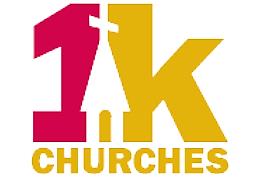 Just about a year ago, a small group of Union Church members began six weeks of focused Bible study to reflect and learn together how God calls us at our church to act as economic beings. Our biblically grounded conversations, led by Bart Kelso and Brita Gil Austern, created a visionary framework for new perspectives about money, debt, investment, poverty and deep theological reflection about our personal and collective economic relationships. Learning about God’s Economy through scripture was our starting point to figure out ways for our church to create and sustain economic relationships that build on and advance Union Church Mission values. Could we make a difference, perhaps, through microloans to a small business? Would wrestling with the macro issues of income inequality and economic insecurity- one on one, person to person- in our local area strengthen our mission work on hunger, our local initiative with Dorchester parents and students, or our advocacy for affordable housing? We then entered a process of discernment to guide us to decisions about whether it was time for the Union Church to become a 1K Church, joining an ecumenical movement of church’s with a vision of reshaping the economy to more resemble God’s Economy. (“1K “symbolizes the goal of Criterion Institute that each church that engages in their God’s Economy initiative will be eventually be joined by 999 other Churches. So that by the end of 2017, one thousand churches across the U. S. will be part of the movement.)
Just about a year ago, a small group of Union Church members began six weeks of focused Bible study to reflect and learn together how God calls us at our church to act as economic beings. Our biblically grounded conversations, led by Bart Kelso and Brita Gil Austern, created a visionary framework for new perspectives about money, debt, investment, poverty and deep theological reflection about our personal and collective economic relationships. Learning about God’s Economy through scripture was our starting point to figure out ways for our church to create and sustain economic relationships that build on and advance Union Church Mission values. Could we make a difference, perhaps, through microloans to a small business? Would wrestling with the macro issues of income inequality and economic insecurity- one on one, person to person- in our local area strengthen our mission work on hunger, our local initiative with Dorchester parents and students, or our advocacy for affordable housing? We then entered a process of discernment to guide us to decisions about whether it was time for the Union Church to become a 1K Church, joining an ecumenical movement of church’s with a vision of reshaping the economy to more resemble God’s Economy. (“1K “symbolizes the goal of Criterion Institute that each church that engages in their God’s Economy initiative will be eventually be joined by 999 other Churches. So that by the end of 2017, one thousand churches across the U. S. will be part of the movement.)
Our study group decided to take the next steps to form a 1K task force and become a 1K church. A proposal to do so and reserve capital mission funds to be used for micro-finance loans of $500 to $5000 was approved by Church Council.
Next the 1K task force, led by Brita and aided by the Criterion Institutes 1K implementation Guide, investigated various investment pathways and outreach strategies to potential borrowers and community finance institutions. Task force members surveyed and contacted possible leads and resources throughout Greater Boston – from Lowell to Fall River. Wat Matsuyasu introduced us to Mill City Investments, a community development corporation in the Lowell / Lawrence area run by Mr. Frank Cavallo. Mr. Cavallo met with the Task Force several times sharing his expertise as a banker, his business acumen and intimate, personal engagement with immigrant communities. So guided, the Task force focused its attention on the needs of fledgling inner city bodegas serving immigrant customers in Lawrence. These small neighborhood stores are essentially “redlined” by local bankers and rely on “private loans” with sky-high interest rates to try to stay in business.
Now the task force is preparing to accept applications for a small loan ($500-2,500) with low interest (1%) to be repaid in one year. We hope to support a business plan that uses our investment to provide fresh nutritious produce to bodega customers. It is also our goal that our loan and an ongoing relationship with small community business owners in Lawrence will yield returns to our church mission and provide opportunities for our youth to learn about and participate in God’s Economy.
